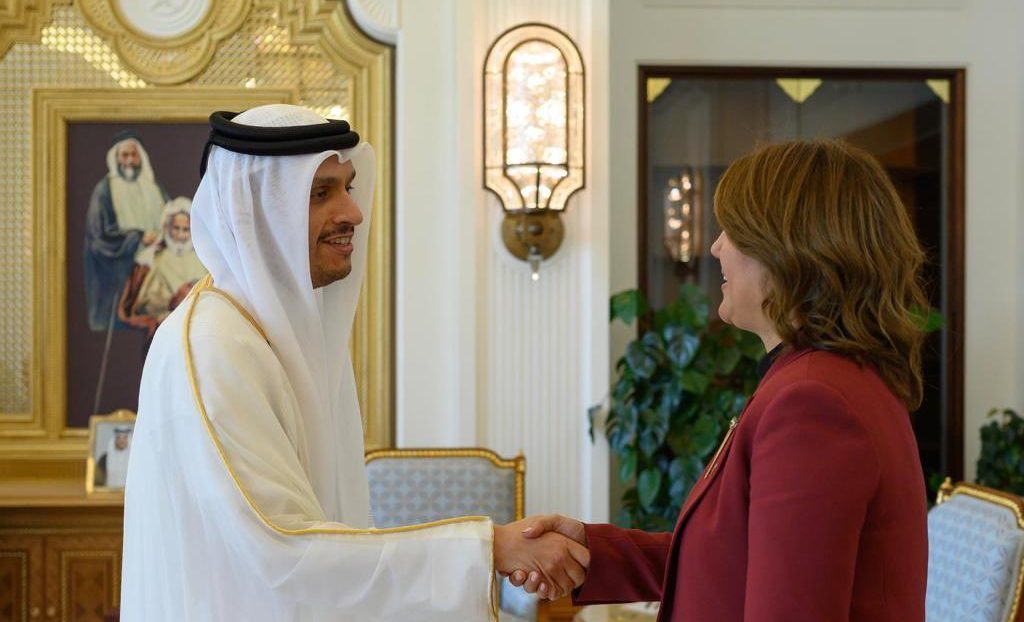Several rounds of violence have erupted throughout the years-long crisis in Libya, including fatal clashes that killed at least 32 people last year.
Officials from Qatar and Libya discussed the latest developments in Tripoli on Sunday amid international efforts to hold long-delayed elections in the country.
The discussions took place between Qatar’s Prime Minister and Minister of Foreign Affairs Sheikh Mohammed bin Abdulrahman Al Thani and Libya’s Minister of Foreign Affairs Najla El Mangoush at the Amiri Diwan in Doha.
“During the meeting, they discussed bilateral cooperation relations between the two countries, and the developments in the situation in Libya – especially the preparation for the elections, in addition to several regional and international issues of common concern,” Qatar’s foreign ministry said in a statement.
It comes as the international community continues to press Libya to hold long-delated elections. The initial date was set for December 2021 before it was stalled due to political tensions between different parties.
In March, the United Nations envoy for Libya Abdoulaye Bathily said the elections would be held by the end of the year if a road map that includes electoral laws is decided by June, Reuters reported at the time.
Bathily had also announced an initiative to break Libya’s political impasse by creating a committee that would pave the way for elections.
The committee, represented by the House of Representatives (HoR) and High State Council (HSC), comprised six members who would draft the electoral laws. Bathily had stressed that “there is no reason for any more delay”.
“Successive interim arrangements, endless transition governments, legislative bodies whose terms of office have expired are a source of instability,” Bathily said, as quoted by Reuters.
During the same month, Bathily said the UN “will look into” an alternative if the appointed legislative bodies fail to agree on electoral laws.
“They have to deliver on this in a timely manner,” Bathily told Reuters.
While the HoR was elected in 2014 for 18 months, the HSC was elected in 2015 under a political agreement by the parliament in 2012, a year after the death of long-time ruler Muammar Gaddafi amid mass pro-democracy protests.
Last year, tensions increased between the UN-backed Government of National Unity (GNU) and the newly-appointed rival administration of Fathi Bashagha—widely viewed as an ally of rogue General Khalifa Haftar.
The GNU, recognised by Qatar, came to power in 2021 after a long period of instability that followed the overthrow of former dictator Gaddafi.
Several rounds of violence have erupted throughout the years-long crisis in Libya, including fatal clashes that killed at least 32 people last year.
Speaking to Reuters, Bathily stressed that no “free and fair elections” can take place “under the current fragmentation of the security apparatus”.







